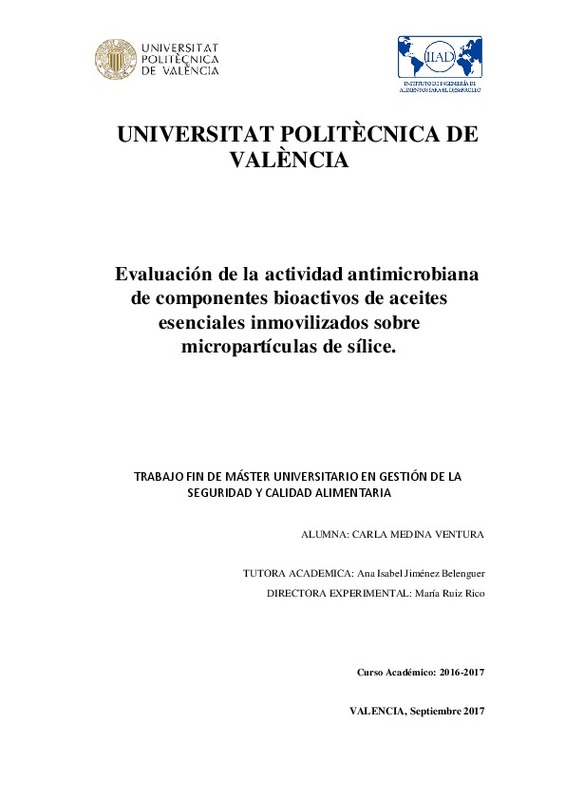JavaScript is disabled for your browser. Some features of this site may not work without it.
Buscar en RiuNet
Listar
Mi cuenta
Estadísticas
Ayuda RiuNet
Admin. UPV
Evaluación de la actividad antimicrobiana de componentes bioactivos de aceites esenciales inmovilizados sobre micropartículas de sílice
Mostrar el registro completo del ítem
Medina Ventura, C. (2017). Evaluación de la actividad antimicrobiana de componentes bioactivos de aceites esenciales inmovilizados sobre micropartículas de sílice. http://hdl.handle.net/10251/89637
Por favor, use este identificador para citar o enlazar este ítem: http://hdl.handle.net/10251/89637
Ficheros en el ítem
Metadatos del ítem
| Título: | Evaluación de la actividad antimicrobiana de componentes bioactivos de aceites esenciales inmovilizados sobre micropartículas de sílice | |||
| Autor: | Medina Ventura, Carla | |||
| Director(es): | ||||
| Entidad UPV: |
|
|||
| Fecha acto/lectura: |
|
|||
| Resumen: |
[ES] Los aceites esenciales y sus bioactivos presentan reconocida actividad
antimicrobiana por lo que se ha propuesto su uso en alimentación como
conservantes naturales. Sin embargo, su aplicación está limitada por ...[+]
[EN] Essential oils and their bioactives have recognized antimicrobial activity and it has been proposed to use them as natural preservatives. However, its application is limited by its intense sensory properties. As an ...[+]
|
|||
| Palabras clave: |
|
|||
| Derechos de uso: | Reconocimiento - No comercial - Sin obra derivada (by-nc-nd) | |||
| Editorial: |
|
|||
| Titulación: |
|
|||
| Tipo: |
|
recommendations
Este ítem aparece en la(s) siguiente(s) colección(ones)
-
ETSIAMN - Trabajos académicos [3541]
Escuela Técnica Superior de Ingeniería Agronómica y del Medio Natural







